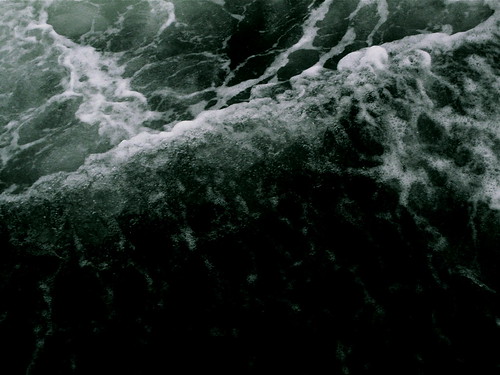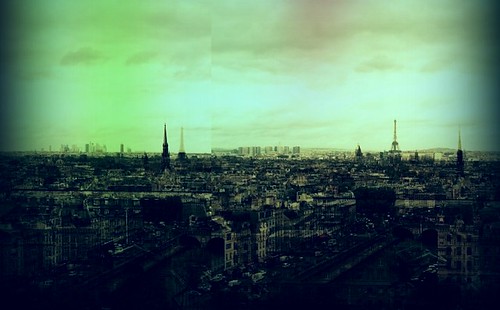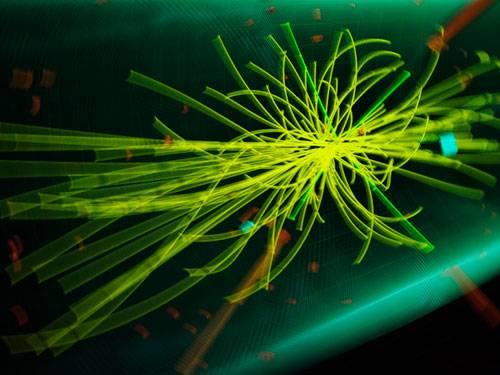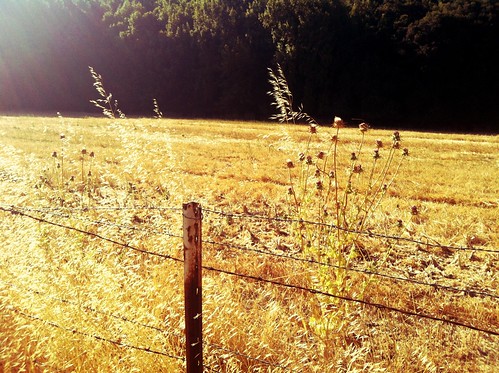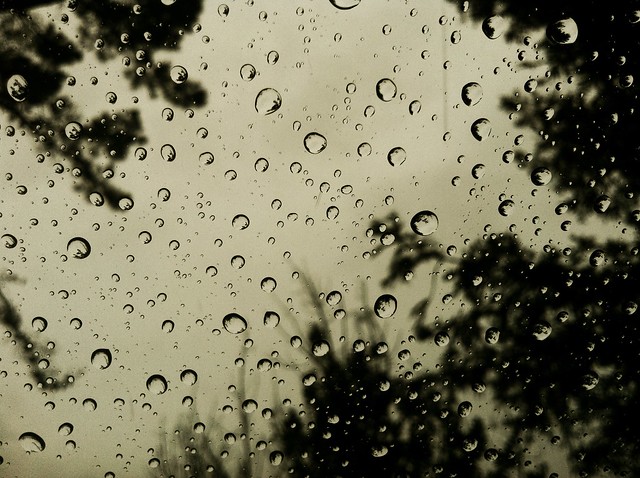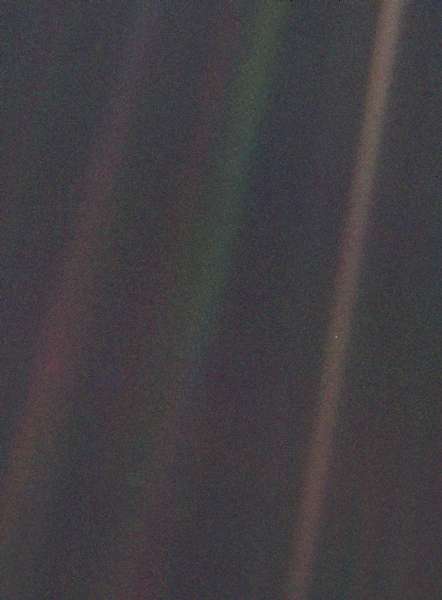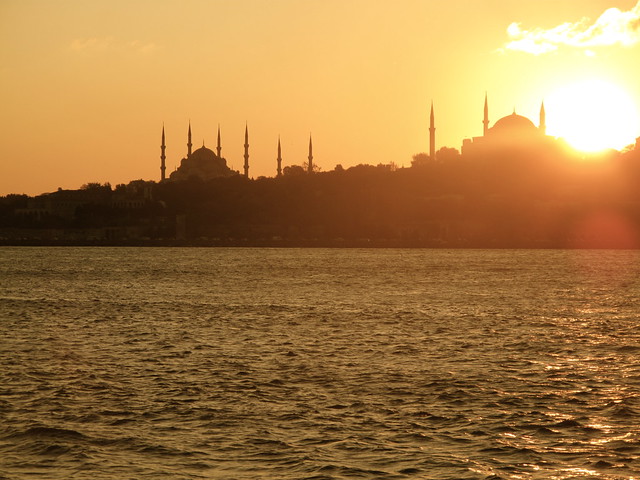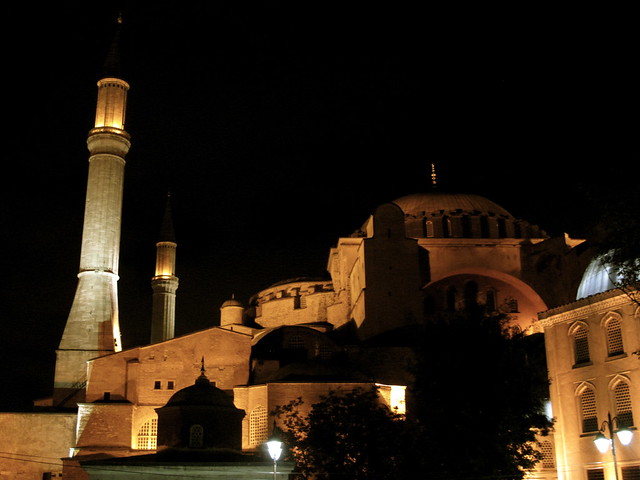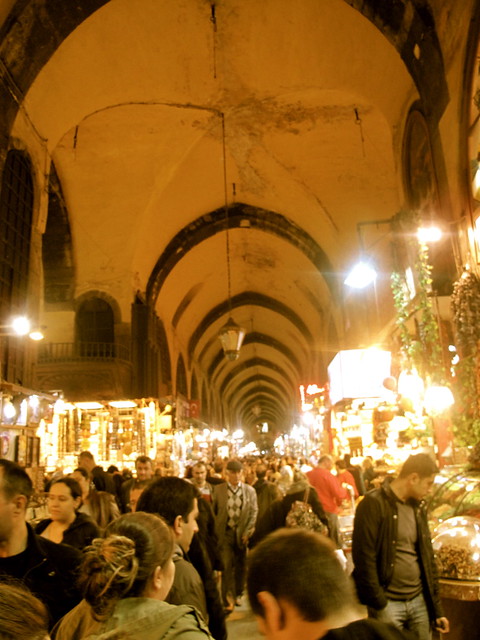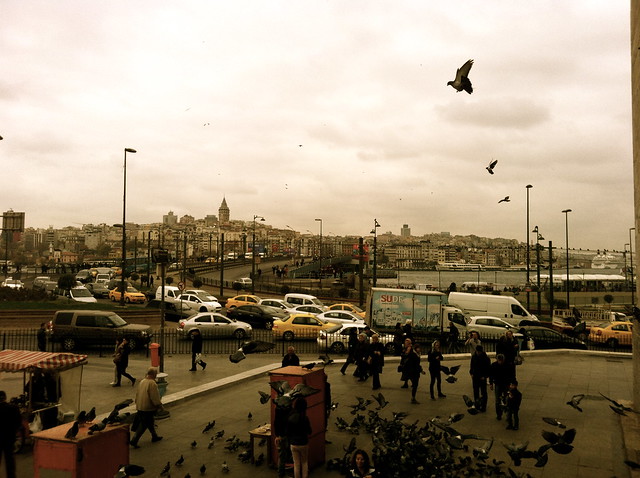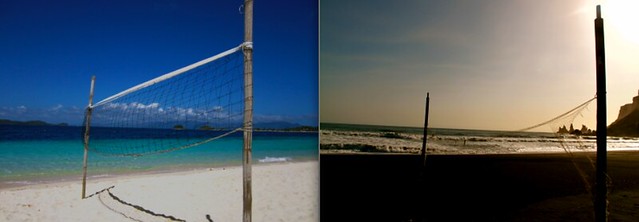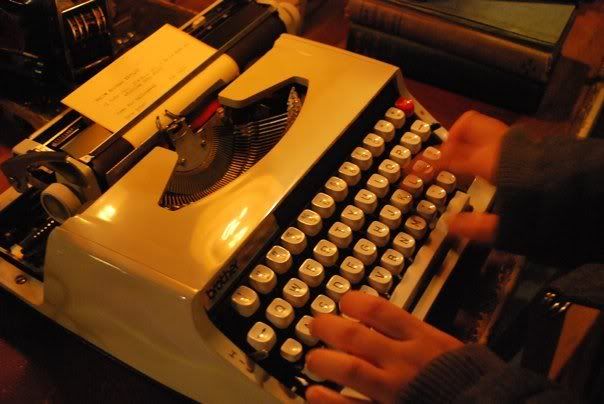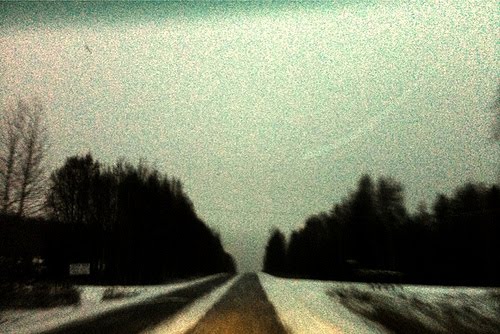New York, September 2011
I am here in New York, in Roosevelt Island,
and outside the window I can see the yellow light glowing from the top
of Chrysler Building. New York at night is filled with light. Tiny
boxes with light. This city is grand and I am filled with its ambition.
But this city also makes me feel small--I am a tiny box filled with
light.
---
Here at JFK on my way to Reykjavík and inside my bag
is a happy harvest--oranges, dried apricots, almonds, cashew, sunflower
seeds, raisins, cranberries, banana and apple fruit crush, etc.This is
what I'm going to be eating in Iceland.
I am going to Iceland not
really knowing where I'm going first. It excites me more than it
terrifies me. There is a certain safety in Iceland. Its smallness calm
any anxiety I have.
Vík, September 2011
The dirt under my fingernails remind me of how close I am to earth.
Kirkjubæjarklaustur, September 2011
Billie
Holiday's A Fine Romance is playing while he cooks rice porridge. We
are the only ones in the hostel; not even the owners/caretakers are
here. We can hear the waterfalls from where we are. What if I stay?
1. I am changing just like the landscape. So quiet, so small. But there are fiery volcanoes inside me.
2. A stranger shared his food with me when I was hungry. After the meal, it was my heart that was full.
3. "It's here, but not here," a 13-year old Polish girl said when I asked her for directions.
4.
He did not help me when we were climbing to the top of the waterfalls.
He wanted to show me how strong I am. He had only known me for three
days.
5. "Sometimes nature also needs to be alone," he said.
Train ride from Florence to Rome, September 2011
Somehow,
signs of poverty bring me a certain happiness--worn-out boots, dirt
and holes on clothes, unruly hair, the constant feeling of hunger. I am
poor and rich at the same time. The kindness of strangers, the
stillness of ever-changing landscapes, and the brilliant energy of
cities fill my sense of self. And I feel wealthier than ever.
---
This
is constant--the feeling that I am changing. Being so close to nature
makes you aware of the smallest transformations that happen within
yourself.
---
Every city is the same (arguable).
---
At this moment, I want you to kiss me. Because the landscape is urging you to do so.
Sofia, October 2011
Elsewhere
We talk of places
of dreams of comings and goings
of flight
of being light
the desire to be quiet and
small like a point on a map
that tells of an unheard place.
This is the great discovery--
a self found
in the here and now
a strong sense of self against
the ever-changing landscape.
Smilyan, October 2011
I
miss my family. This is an alien feeling. Most of the time I want to
be away from them, to be on my own. But this night, deep in the
mountains of Bulgaria, I long for them.
Train ride from Plovdiv to Istanbul, October 2011
1.
I am rich because of friends who remind me that I always have a home,
and because of strangers who showed me so much kindness and generosity
when I am homeless.
2. Traveling alone--I am not lonely. It is not
sadness that I feel. It is more of an awareness of my existence, of my
being, so singular this force of knowing one's self.
Istanbul, October 2011
At the bus station in Istanbul, waiting for the night bus that will take me to Konya. This is a pilgrimage.
Where do I begin with Istanbul?
The
sound of this city is intoxicating--the Islamic prayers, pleas of Roma
women, songs of the Black Sea, young men cheering on the streets,
whispers of lovers . . .
Berlin, November 2011
That
was the first sign--the lion statue in Tiergarten. Hic Svnt Leones. To
be fearless while exploring unknown places. This is my life now. Yes and
no.
25 September 2012
15 July 2012
08 July 2012
All-Class
"Beauty is not the goal of
competitive sports, but high-level sports are a prime venue for the
expression of human beauty. The relation is roughly that of courage to
war.
The human beauty we’re talking about here is beauty of a particular type; it might be called kinetic beauty. Its power and appeal are universal. It has nothing to do with sex or cultural norms. What it seems to have to do with, really, is human beings’ reconciliation with the fact of having a body."
The human beauty we’re talking about here is beauty of a particular type; it might be called kinetic beauty. Its power and appeal are universal. It has nothing to do with sex or cultural norms. What it seems to have to do with, really, is human beings’ reconciliation with the fact of having a body."
05 July 2012
04 July 2012
universe and nothing
She came to physics from an education steeped in ancient Greek,
philosophy and the history of art – she had also trained as a pianist at
the Milan Conservatory. But she ultimately chose physics to answer the
big question of why things are as they are. "Physics is, unfortunately,
often seen as a male subject; sterile and without charm or emotion," she
told the Cern magazine. "But this is not true, because physics is art,
aesthetics, beauty and symmetry."
Ian Sample on Fabiola Gianotti
More than this, however, the Higgs field implies that otherwise
seemingly empty space is much richer and weirder than we could have
imagined even a century ago, and in fact that we cannot understand our
own existence without understanding “emptiness” better.
24 June 2012
18 June 2012
There will come soft rains
There will come soft rains and the smell of the ground,
And swallows circling with their shimmering sound;
And frogs in the pools singing at night,
And wild plum-trees in tremulous white;
Robins will wear their feathery fire
Whistling their whims on a low fence-wire.
And not one will know of the war, not one
Will care at last when it is done.
Not one would mind, neither bird nor tree,
If mankind perished utterly.
And Spring herself when she woke at dawn,
Would scarcely know that we were gone.
17 June 2012
"...I wondered, understanding nothing."
Alex is eight, and already he has shut away the wilderness of the world. I lost it, too, in early childhood. But memories would come on wings of light--a shining bird, high pines and sun, the fire in a floating leaf, the autumn heat in weathered wood, wood smell, a child, soft lichen on a stone--a light-filled immanence, shimmering and breathing, and yet so fleeting that it left me breathless and in pain. One night in 1945, on a Navy vessel in a Pacific storm, my relief on bow watch, seasick, failed to appear, and I was alone for eight hours in a maelstrom of wind and water, noise and iron; again and again, waves crashed across the deck, until water, air, and iron became one. Overwhelmed, exhausted, all thought and emotion beaten out of me, I lost my sense of self, the heartbeat I heard was the heart of the world, I breathed with the mighty risings and declines of earth, and this evanescence seemed less frightening than exalting. Afterward, there was pain of loss--loss of what, I wondered, understanding nothing.
- Peter Matthiessen, The Snow Leopard
Labels:
books,
flight,
peter matthiessen,
the snow leopard
06 May 2012
the genius of a sentence
“He gazed sadly at the threatening sky, at the burned-out remnants of a locust-plagued summer, and suddenly saw on the twig of an acacia, as in a vision, the progress of spring, summer, fall and winter, as if the whole time were a frivolous interlude in the much greater spaces of eternity, a brilliant conjuring trick to produce something apparently orderly out of chaos, to establish a vantage point from which chance might begin to look like necessity...and he saw himself nailed to the cross of his own cradle and coffin, painfully trying to tear his body away, only, eventually, to deliver himself--utterly naked, without identifying mark, stripped down to essentials--into the care of the people whose duty it was to wash the corpses, people obeying an order snapped out in the dry air against a background loud with tortures and flayers of skin, where he was obliged to regard the human condition without a trace of pity, without a single possibility of any way back to life, because by then he would know for certain that all his life he had been playing with cheaters who had marked the cards and who would, in the end, strip him even of his last means of defense, of that hope of someday finding his way back home.”
- Satantango by László Krasznahorkai
26 March 2012
29 February 2012
Light Reading
Language of the Birds
Brian Goggin with Dorka Keehn
2006-2008
(A site-specific sculptural installation for the public plaza on the corner of Broadway, Grant and Columbus Streets, San Francisco)
Historically “The Language of the Birds” was considered a divine language birds used to communicate with the initiated. Here, a flock of books takes off from the plaza to fly the urban gullies of the city. The fluttering books have left a gentle imprint of words beneath them. These serendipitously configured bits of local literature reveal the layering of culture, nature and consciousness.
Language of the Birds is a flock of twenty-three sculpted illuminated books, which appear to have just taken flight from the plaza like pigeons scared up by a passer by. Appearing to be in motion, the books have flown open creating various wing positions with the pages and bindings. The entire artwork appears to be in motion with each book holding its position as a bird does in a flock.
Each unique book is fabricated in frosted white translucent polycarbonate. These sculptural elements are suspended from a geometric web of stainless steel aircraft cables. At night LED lights embedded in the books create visual patterns, at different times one might see the flock subtly pulsing or displaying a spectacular zoetropic effect. The dynamic lights of Language of the Birds play in the night sky with the other luminous signs of the area.
Passing under the flock, pedestrians notice words and phrases embedded in the plaza floor that appear to have fallen from the pages. On closer inspection the fallen words are in English, Italian and Chinese and were selected from the neighborhood’s rich literary history, ranging from the Beats, to SF Renaissance poets and Chinese writers, over 90 authors are represented including Armistead Maupin, Gary Snyder,William T. Vollman, and Jade Snow Wong.
The artists created the design of the plaza floor in Atrium of the SFMOMA. Retaining their original font, individual words from chosen phrases were cast from the third floor gallery of the museum. Words fluttered down 60 feet landing on a paper replica of the plaza thus determining their resting place in the final artwork. Influenced by practices like reading tea-leaves and Japanese gardening techniques. The words intersect in ways that allow for new unique interpretations and meanings.
Goggin conceptualized of the piece during a residency at the Djerassi foundation. “I sat with my understanding of the site, while watching swallows move through the air, they came together to create fleeting compositions. The image of flying books emerged from the idea of culture and nature interconnecting in unexpected ways.” Influenced by the literary genre magic realism, his sculptures bring new life, movement and meaning to familiar objects .
Historically “the language of the birds” is referred to in mythology, medieval literature, and occult texts as a mystical, ideal or divine language, or a mythical or magical language used by birds to communicate with the initiated. In Kaballah, Renaissance magic, and alchemy, the language of the birds was considered a secret key to perfect knowledge.
Goggin and Keehn teamed up with scientist David Shearer and Lawrence Ferlengetti’s City lights bookstore to power Language of the Birds with solar panels mounted on top of the iconic bookstore. It is the first permanent solar-powered public art piece in the United States.
Labels:
books,
flight,
message to bears,
music,
san francisco
23 February 2012
The Pale Blue Dot
...But, Carl Sagan convinced them to turn Voyager back to Earth and take a final picture.
So on Valentine's Day, 1990, one of the ships slowly rotated so it was facing back to Earth, and it snapped a picture.
One last picture...
Describe it.
So...it's mostly empty. It's pretty dark. You can see sort of streaks of light coming from the sun, and then, you honestly wouldn't notice it if wasn't pointed out to you, but down in one corner... kind of suspended in a sunbeam, there is a very small dot...blue...a pale blue dot...that was us.
In Carl Sagan's words, "Everyone you ever knew, everyone you ever loved, every superstar, every corrupt politician, just everyone in all of history, everything, the sum total...Think of the rivers of blood that have run so that one indistinguishable group could have momentary domination over a fraction of that pixel.."
Every single day I hear from people who take that pale blue dot so deeply to heart.
It was a complete reframing.
After that, the cameras were turned off.
- from Radiolab's story, Is There an Edge to the Heavens?, in the Escape! episode
20 February 2012
14 February 2012
02 February 2012
Thank You For Nothing
The Poet and The World
Wislawa Szymborska
They say the first sentence in any speech is always the hardest. Well, that one's behind me, anyway. But I have a feeling that the sentences to come - the third, the sixth, the tenth, and so on, up to the final line - will be just as hard, since I'm supposed to talk about poetry. I've said very little on the subject, next to nothing, in fact. And whenever I have said anything, I've always had the sneaking suspicion that I'm not very good at it. This is why my lecture will be rather short. All imperfection is easier to tolerate if served up in small doses.
Contemporary poets are skeptical and suspicious even, or perhaps especially, about themselves. They publicly confess to being poets only reluctantly, as if they were a little ashamed of it. But in our clamorous times it's much easier to acknowledge your faults, at least if they're attractively packaged, than to recognize your own merits, since these are hidden deeper and you never quite believe in them yourself ... When filling in questionnaires or chatting with strangers, that is, when they can't avoid revealing their profession, poets prefer to use the general term "writer" or replace "poet" with the name of whatever job they do in addition to writing. Bureaucrats and bus passengers respond with a touch of incredulity and alarm when they find out that they're dealing with a poet. I suppose philosophers may meet with a similar reaction. Still, they're in a better position, since as often as not they can embellish their calling with some kind of scholarly title. Professor of philosophy - now that sounds much more respectable.
But there are no professors of poetry. This would mean, after all, that poetry is an occupation requiring specialized study, regular examinations, theoretical articles with bibliographies and footnotes attached, and finally, ceremoniously conferred diplomas. And this would mean, in turn, that it's not enough to cover pages with even the most exquisite poems in order to become a poet. The crucial element is some slip of paper bearing an official stamp. Let us recall that the pride of Russian poetry, the future Nobel Laureate Joseph Brodsky was once sentenced to internal exile precisely on such grounds. They called him "a parasite," because he lacked official certification granting him the right to be a poet ...
Several years ago, I had the honor and pleasure of meeting Brodsky in person. And I noticed that, of all the poets I've known, he was the only one who enjoyed calling himself a poet. He pronounced the word without inhibitions. Just the opposite - he spoke it with defiant freedom. It seems to me that this must have been because he recalled the brutal humiliations he had experienced in his youth.
In more fortunate countries, where human dignity isn't assaulted so readily, poets yearn, of course, to be published, read, and understood, but they do little, if anything, to set themselves above the common herd and the daily grind. And yet it wasn't so long ago, in this century's first decades, that poets strove to shock us with their extravagant dress and eccentric behavior. But all this was merely for the sake of public display. The moment always came when poets had to close the doors behind them, strip off their mantles, fripperies, and other poetic paraphernalia, and confront - silently, patiently awaiting their own selves - the still white sheet of paper. For this is finally what really counts.
It's not accidental that film biographies of great scientists and artists are produced in droves. The more ambitious directors seek to reproduce convincingly the creative process that led to important scientific discoveries or the emergence of a masterpiece. And one can depict certain kinds of scientific labor with some success. Laboratories, sundry instruments, elaborate machinery brought to life: such scenes may hold the audience's interest for a while. And those moments of uncertainty - will the experiment, conducted for the thousandth time with some tiny modification, finally yield the desired result? - can be quite dramatic. Films about painters can be spectacular, as they go about recreating every stage of a famous painting's evolution, from the first penciled line to the final brushstroke. Musicswells in films about composers: the first bars of the melody that rings in the musician's ears finally emerge as a mature work in symphonic form. Of course this is all quite naive and doesn't explain the strange mental state popularly known as inspiration, but at least there's something to look at and listen to.
But poets are the worst. Their work is hopelessly unphotogenic. Someone sits at a table or lies on a sofa while staring motionless at a wall or ceiling. Once in a while this person writes down seven lines only to cross out one of them fifteen minutes later, and then another hour passes, during which nothing happens ... Who could stand to watch this kind of thing?
I've mentioned inspiration. Contemporary poets answer evasively when asked what it is, and if it actually exists. It's not that they've never known the blessing of this inner impulse. It's just not easy to explain something to someone else that you don't understand yourself.
When I'm asked about this on occasion, I hedge the question too. But my answer is this: inspiration is not the exclusive privilege of poets or artists generally. There is, has been, and will always be a certain group of people whom inspiration visits. It's made up of all those who've consciously chosen their calling and do their job with love and imagination. It may include doctors, teachers, gardeners - and I could list a hundred more professions. Their work becomes one continuous adventure as long as they manage to keep discovering new challenges in it. Difficulties and setbacks never quell their curiosity. A swarm of new questions emerges from every problem they solve. Whatever inspiration is, it's born from a continuous "I don't know."
There aren't many such people. Most of the earth's inhabitants work to get by. They work because they have to. They didn't pick this or that kind of job out of passion; the circumstances of their lives did the choosing for them. Loveless work, boring work, work valued only because others haven't got even that much, however loveless and boring - this is one of the harshest human miseries. And there's no sign that coming centuries will produce any changes for the better as far as this goes.
And so, though I may deny poets their monopoly on inspiration, I still place them in a select group of Fortune's darlings.
At this point, though, certain doubts may arise in my audience. All sorts of torturers, dictators, fanatics, and demagogues struggling for power by way of a few loudly shouted slogans also enjoy their jobs, and they too perform their duties with inventive fervor. Well, yes, but they "know." They know, and whatever they know is enough for them once and for all. They don't want to find out about anything else, since that might diminish their arguments' force. And any knowledge that doesn't lead to new questions quickly dies out: it fails to maintain the temperature required for sustaining life. In the most extreme cases, cases well known from ancient and modern history, it even poses a lethal threat to society.
This is why I value that little phrase "I don't know" so highly. It's small, but it flies on mighty wings. It expands our lives to include the spaces within us as well as those outer expanses in which our tiny Earth hangs suspended. If Isaac Newton had never said to himself "I don't know," the apples in his little orchard might have dropped to the ground like hailstones and at best he would have stooped to pick them up and gobble them with gusto. Had my compatriot Marie Sklodowska-Curie never said to herself "I don't know", she probably would have wound up teaching chemistry at some private high school for young ladies from good families, and would have ended her days performing this otherwise perfectly respectable job. But she kept on saying "I don't know," and these words led her, not just once but twice, to Stockholm, where restless, questing spirits are occasionally rewarded with the Nobel Prize.
Poets, if they're genuine, must also keep repeating "I don't know." Each poem marks an effort to answer this statement, but as soon as the final period hits the page, the poet begins to hesitate, starts to realize that this particular answer was pure makeshift that's absolutely inadequate to boot. So the poets keep on trying, and sooner or later the consecutive results of their self-dissatisfaction are clipped together with a giant paperclip by literary historians and called their "oeuvre" ...
I sometimes dream of situations that can't possibly come true. I audaciously imagine, for example, that I get a chance to chat with the Ecclesiastes, the author of that moving lament on the vanity of all human endeavors. I would bow very deeply before him, because he is, after all, one of the greatest poets, for me at least. That done, I would grab his hand. "'There's nothing new under the sun': that's what you wrote, Ecclesiastes. But you yourself were born new under the sun. And the poem you created is also new under the sun, since no one wrote it down before you. And all your readers are also new under the sun, since those who lived before you couldn't read your poem. And that cypress that you're sitting under hasn't been growing since the dawn of time. It came into being by way of another cypress similar to yours, but not exactly the same. And Ecclesiastes, I'd also like to ask you what new thing under the sun you're planning to work on now? A further supplement to the thoughts you've already expressed? Or maybe you're tempted to contradict some of them now? In your earlier work you mentioned joy - so what if it's fleeting? So maybe your new-under-the-sun poem will be about joy? Have you taken notes yet, do you have drafts? I doubt you'll say, 'I've written everything down, I've got nothing left to add.' There's no poet in the world who can say this, least of all a great poet like yourself."
The world - whatever we might think when terrified by its vastness and our own impotence, or embittered by its indifference to individual suffering, of people, animals, and perhaps even plants, for why are we so sure that plants feel no pain; whatever we might think of its expanses pierced by the rays of stars surrounded by planets we've just begun to discover, planets already dead? still dead? we just don't know; whatever we might think of this measureless theater to which we've got reserved tickets, but tickets whose lifespan is laughably short, bounded as it is by two arbitrary dates; whatever else we might think of this world - it is astonishing.
But "astonishing" is an epithet concealing a logical trap. We're astonished, after all, by things that deviate from some well-known and universally acknowledged norm, from an obviousness we've grown accustomed to. Now the point is, there is no such obvious world. Our astonishment exists per se and isn't based on comparison with something else.
Granted, in daily speech, where we don't stop to consider every word, we all use phrases like "the ordinary world," "ordinary life," "the ordinary course of events" ... But in the language of poetry, where every word is weighed, nothing is usual or normal. Not a single stone and not a single cloud above it. Not a single day and not a single night after it. And above all, not a single existence, not anyone's existence in this world.
It looks like poets will always have their work cut out for them.
Translated from the Polish: Stanislaw Baranczak and Clare Cavanagh
22 January 2012
home
6680 miles apart
philippines - iceland
i am caught between two places
summer and winter
distance and distance
and nothingness
Subscribe to:
Posts (Atom)




